Five Ways to Prepare Your Duck Dog for Fall

Kyle Wintersteen, Managing Editor
One of my favorite professional dog trainers is fond of the expression, “Champions are made in July.” Although he’s referring to field trial dogs, the sentiment speaks to the impact that summertime training and exercise can have on a retriever’s performance in the fall. The time to prepare is now. Here are five ways to ensure your duck dog is ready to retrieve on opening day.
Tune Up Obedience
The three most basic commands — sit, stay and come — lay the groundwork for all obedience to come. A steady dog must first learn to stay, a Lab has to sit to accept hand signals, and the “come” command is prerequisite to retrieving. Revisit these commands frequently this summer, as allowing fundamentals to slip will almost certainly degrade more advanced training. Retriever-specific basics such as steadiness and the “place” command should also be reviewed, particularly if your dog’s obedience waivered mid-season. Command refusals won’t resolve themselves.
“Winterize” Your Dog’s Coat
Retrievers repel water, wind and icy temperatures by employing a double-coat and natural oils. Therefore it’s wise to avoid bathing your duck dog as summer winds down, lest you remove its protective oils. And, if your dog lives in the house, try to limit your use of artificial light starting in mid-August. Your retriever’s thick, winter coat grows in response to shortening days, not cooler temperatures. Indoor lighting can impede this process.
Drill, Drill, Drill
It’s scorching hot outside and there are chores to be done and Little Leaguers to shuttle. Summer is a challenging time to train, but train you must, at least if you want your retriever to improve or even simply avoid regressing. First, honestly assess your retriever’s progress. Is he ready to mark multiple falls, or has he gotten sloppy with singles? Is it time for full-fledged blind retrieves, or do you need to further iron out his casts and lining? Plan a consistent summer regimen, allowing the dog’s progression to dictate the pace of adding new drills, and you’ll be a happy guy in October. Given the heat, be sure to train in the coolest hours of the day, keep the sessions short and have plenty of water available.
Maintain a Healthy Weight
If you do nothing else this summer, don’t commit the sin of allowing your duck dog to get fat. In addition to long-term health risks, an overweight retriever won’t fare well the next time a winged mallard settles mid-river. It’s an easy trap to fall into, but in the off-season, your dog’s activity level is likely much lower. He isn’t burning calories just to stay warm, so reduce his food accordingly, by 25 or even 50 percent. Be sure to monitor the dog’s weight and body composition for signs you need to further adjust food intake.
Keep Him Fit
You can also help maintain your dog’s weight while achieving cardiovascular fitness through safe summer exercise. Water work is the preferred choice, as it provides a fun, efficient, full-body workout for the heart, lungs and muscles. It’s regarded as the safest form of summer exercise, too. But be careful: Dogs can still overheat in water, particularly shallower water on hot days. By tossing bumpers into a pond or lake for your retriever this summer, you’ll enable him to focus on the next volley of birds — rather than catching his breath — later this fall.

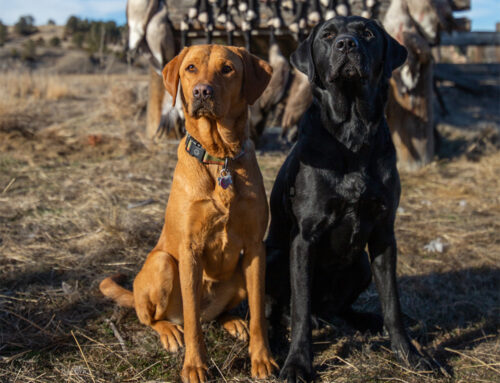
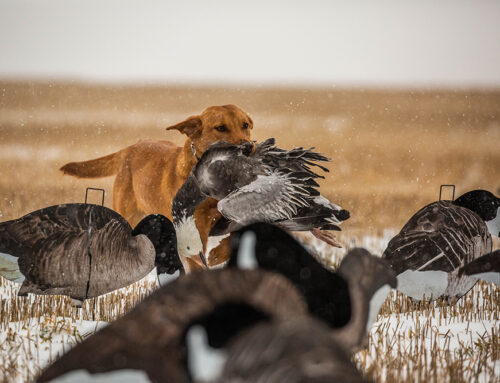
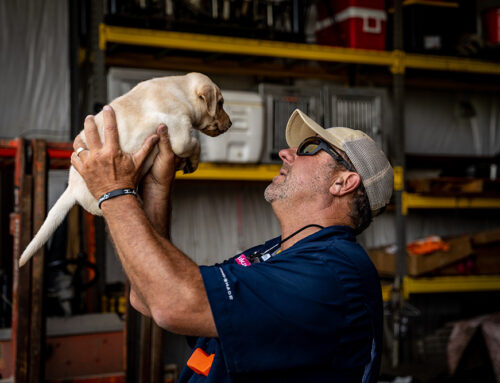
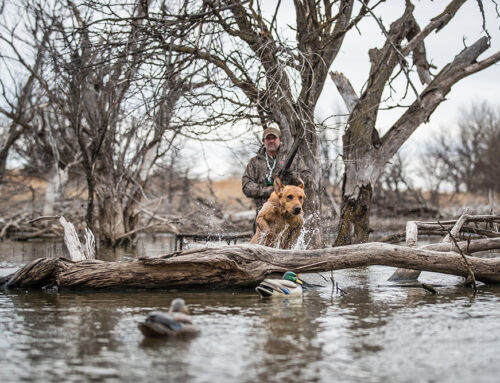
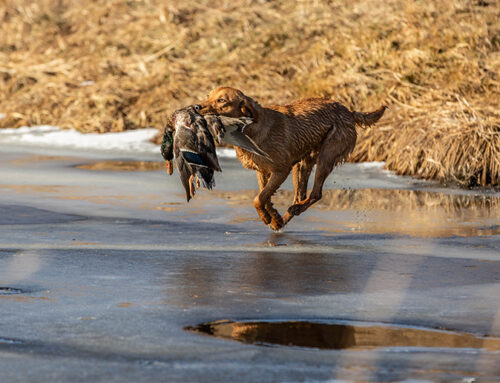
Leave A Comment